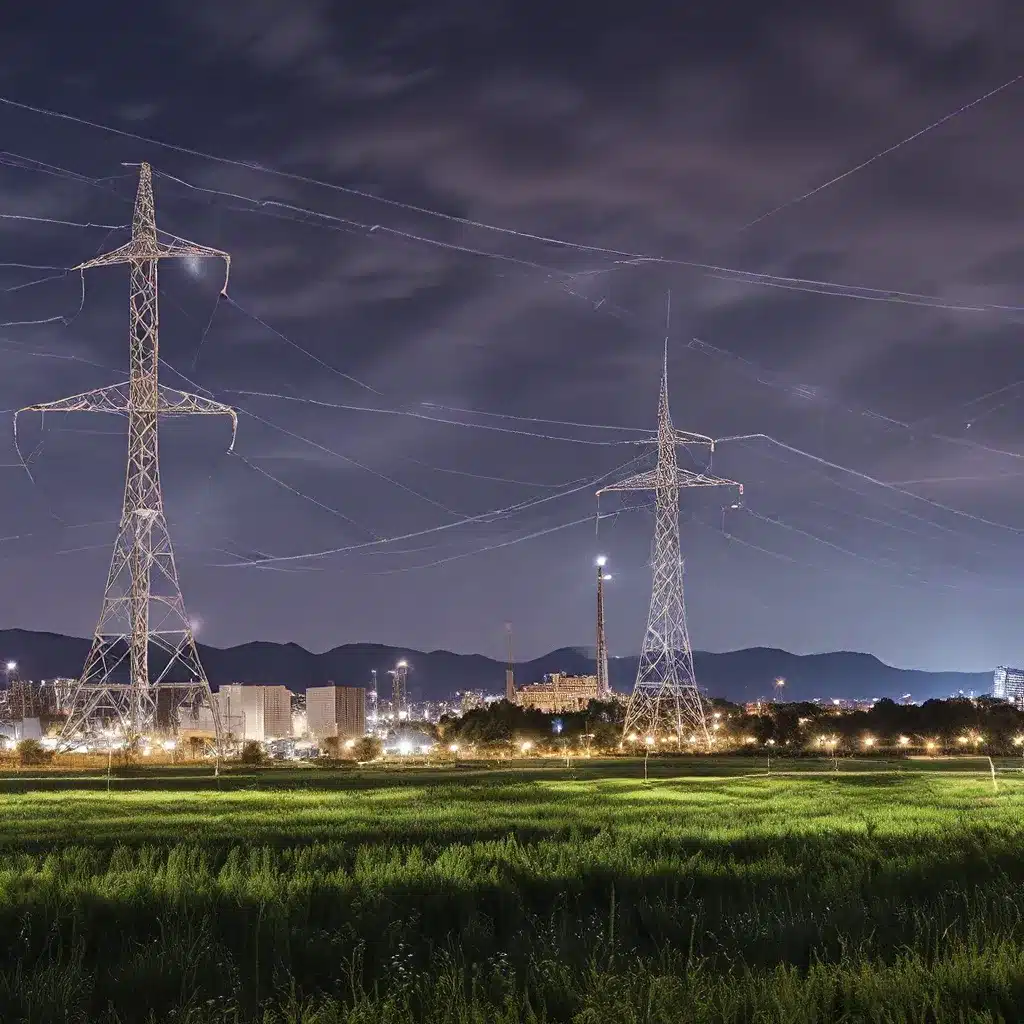
The Rise of the Internet of Things (IoT)
The Internet of Things (IoT) has revolutionized the way we interact with the world around us. This interconnected ecosystem of smart devices, each equipped with sensors and the ability to collect and transmit data, has opened up unprecedented opportunities for innovation, efficiency, and sustainability. From smart home appliances to industrial automation systems, IoT has permeated every facet of our lives, promising to deliver a future where our environment seamlessly adapts to our needs.
However, the exponential growth of IoT devices has also brought about a unique challenge: powering these vast networks of sensors. Conventional battery-powered solutions are quickly becoming inadequate, as the sheer number of devices and their insatiable demand for energy threaten to overwhelm our current infrastructure. The pursuit of sustainable, energy-efficient sensor networks has become a critical priority, driving researchers and innovators to explore groundbreaking solutions.
Redefining Power Efficiency: The Shift Towards Battery-Less Sensors
At the forefront of this revolution are researchers like Benton H. Calhoun, a professor of Electrical and Computer Engineering at the University of Virginia (UVA) and a member of the UVA Link Lab for cyber-physical systems. Calhoun’s pioneering work has focused on developing battery-less sensor technologies that can harvest tiny amounts of energy from the environment, enabling a new generation of self-powering and continuously sensing devices.
Calhoun’s research group has made significant advancements in this field, eliminating the need for traditional batteries altogether. Their early-stage startup, PsiKick (now known as Everactive), introduced the lowest-power wireless sensors in the world, showcasing the potential for battery-less and self-powering sensor networks.
Everactive, the company Calhoun co-founded, is now delivering self-powering, battery-less sensing systems to companies like Merck, 3M, and Morgan Stanley. These systems monitor equipment, detect failures, and provide continuous access to crucial data, all without the need for traditional batteries.
Optimizing Energy Harvesting for Ubiquitous Sensing
The key to Everactive’s success lies in its ability to harvest and harness tiny amounts of energy from the environment, ensuring a never-ending power supply for its sensors. By leveraging energy harvesting techniques, these sensors can draw energy from sources like temperature gradients, vibrations, or even ambient light, eliminating the need for battery replacement and the associated maintenance costs.
Brad Campbell, an assistant professor in the Department of Computer Science and the Charles L. Brown Department of Electrical and Computer Engineering at UVA, is also working on reinventing hardware for the future of IoT. Campbell’s research focuses on developing sensor networks that can create smarter buildings, capable of optimizing energy usage and enhancing occupant comfort.
Campbell’s work, conducted in collaboration with UVA’s Facilities Management team, involves using battery-less sensor networks to monitor steam traps and detect failures in real-time. This proactive approach can prevent the enormous energy losses associated with faulty steam traps, potentially powering an entire home with the energy saved.
Scaling Sensor Networks for the Trillion-Device IoT
As the Internet of Things continues to expand, the need for scalable, energy-efficient sensor networks becomes increasingly critical. Researchers like Calhoun and Campbell are paving the way for a future where sensor-based technologies are ubiquitous, seamlessly integrated into our everyday lives and environments.
One of the key challenges they are addressing is the ability to scale sensor networks to the trillion-device level. Traditionally, the costs and complexities associated with powering and maintaining these networks have been prohibitive, limiting their widespread adoption.
However, battery-less sensor technologies developed by Calhoun, Campbell, and their teams are poised to revolutionize this landscape. By eliminating the need for traditional batteries, these sensors can be deployed at scale, reducing maintenance costs, and minimizing the environmental impact of battery disposal.
Sensor Networks and the Future of Sustainable Industries
The implications of these energy-efficient sensor networks extend far beyond the realm of industrial automation and smart buildings. Precision agriculture, for instance, stands to benefit significantly from the ubiquitous deployment of sensors.
Vineyard owners, for example, could use these self-powering sensors to monitor the micro-climate at each vine, providing real-time data that can be used to optimize crop yields and reduce waste. Similarly, in the agricultural supply chain, these sensors could detect the onset of spoilage in produce shipments, allowing for targeted interventions and minimizing food waste.
The National Resources Defense Council estimates that reducing food losses by just 15% could save enough food to feed more than 25 million Americans every year. The transformative potential of sensor-driven precision agriculture and supply chain optimization is a testament to the far-reaching impact of energy-efficient sensor networks.
Towards a Sustainable and Responsive IoT Future
As the Internet of Things continues to evolve, the need for energy-efficient sensor technologies will only become more pressing. Researchers like Calhoun and Campbell are at the forefront of this revolution, developing battery-less, self-powering sensors that can be deployed at unprecedented scales, revolutionizing industries and paving the way for a more sustainable future.
Through their work, we are witnessing the emergence of a new category of devices – wireless, unobtrusive, and continuously sensing – that can provide unprecedented insights and drive informed decision-making across a wide range of applications. From smart buildings to precision agriculture, these sensor networks are poised to transform our world, optimizing energy usage, reducing waste, and enhancing the efficiency of our most critical systems.
As we look towards the IoT-powered future, the innovations spearheaded by researchers at the University of Virginia and companies like Everactive will undoubtedly play a pivotal role in shaping a more sustainable, responsive, and interconnected world. The power of sensor networks to transform our lives has never been more tangible, and the path forward is paved with groundbreaking breakthroughs in energy-efficient sensor technologies**.